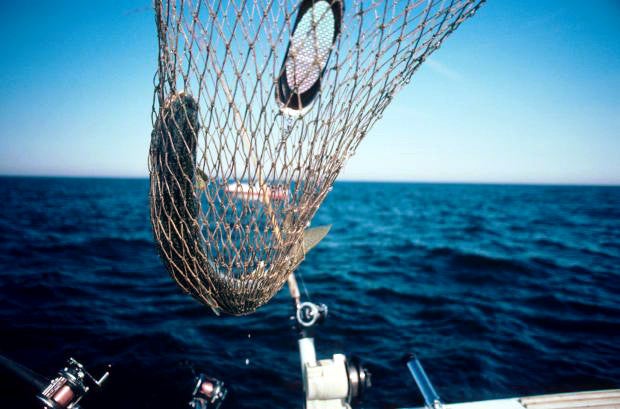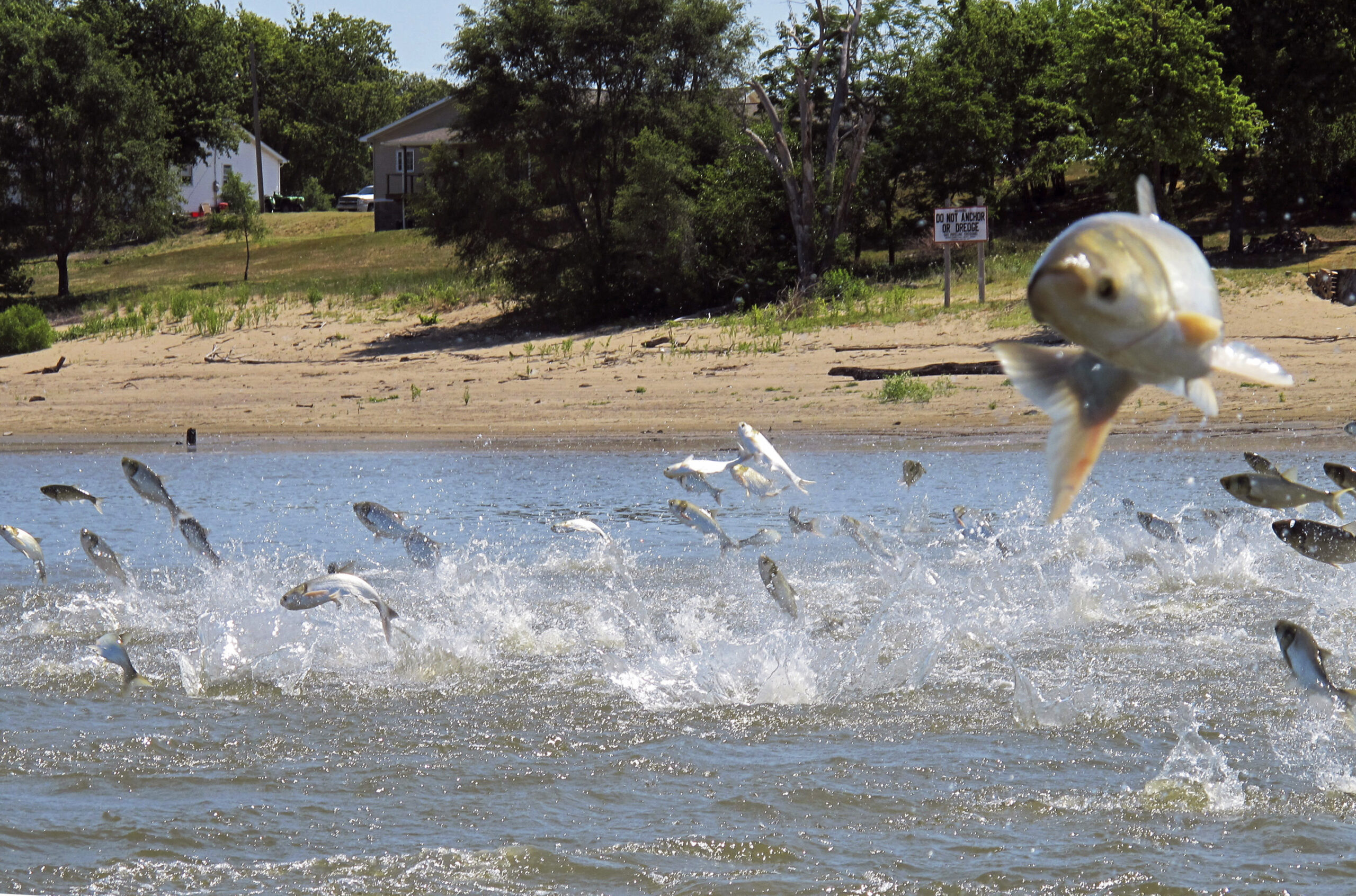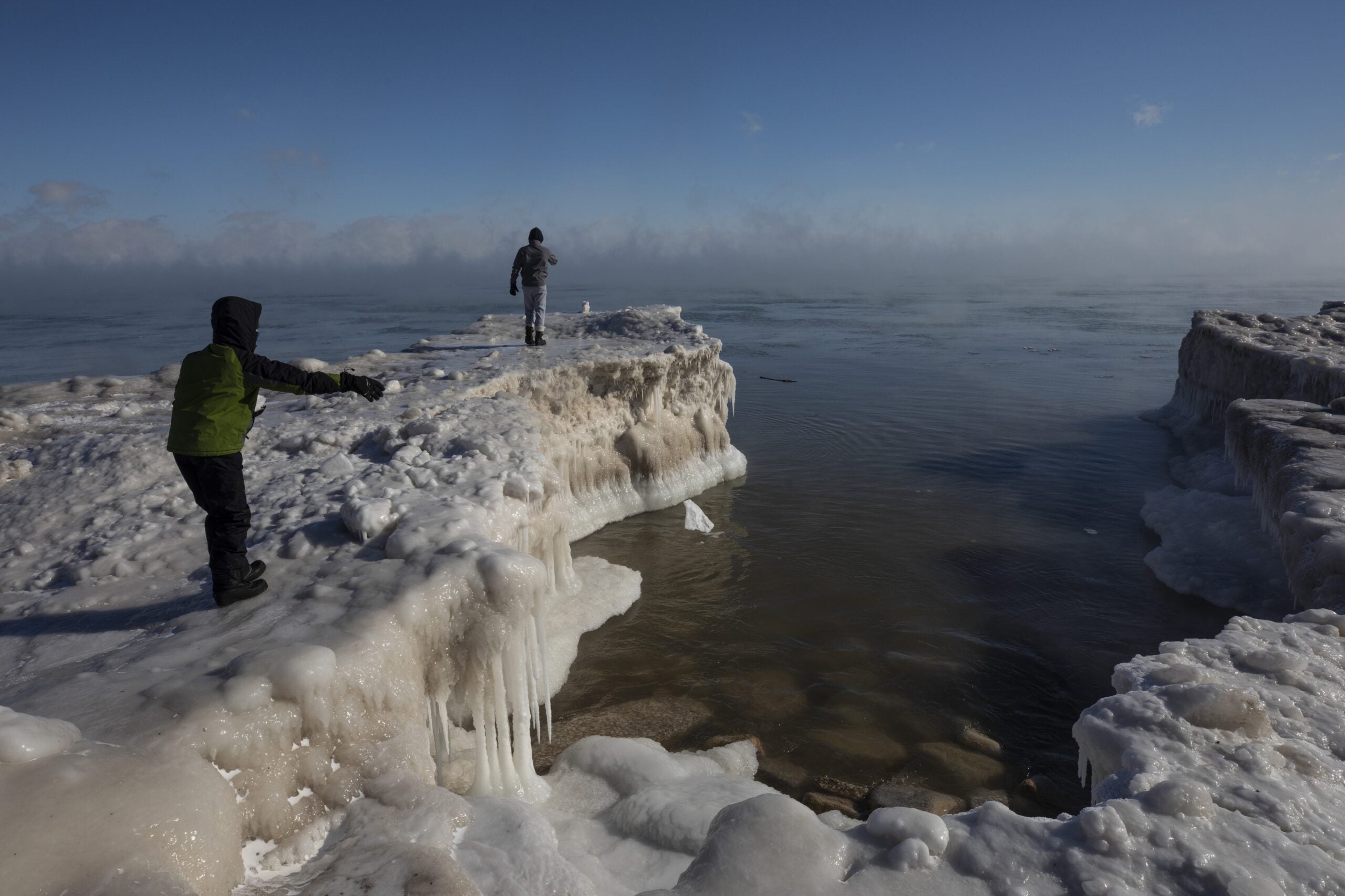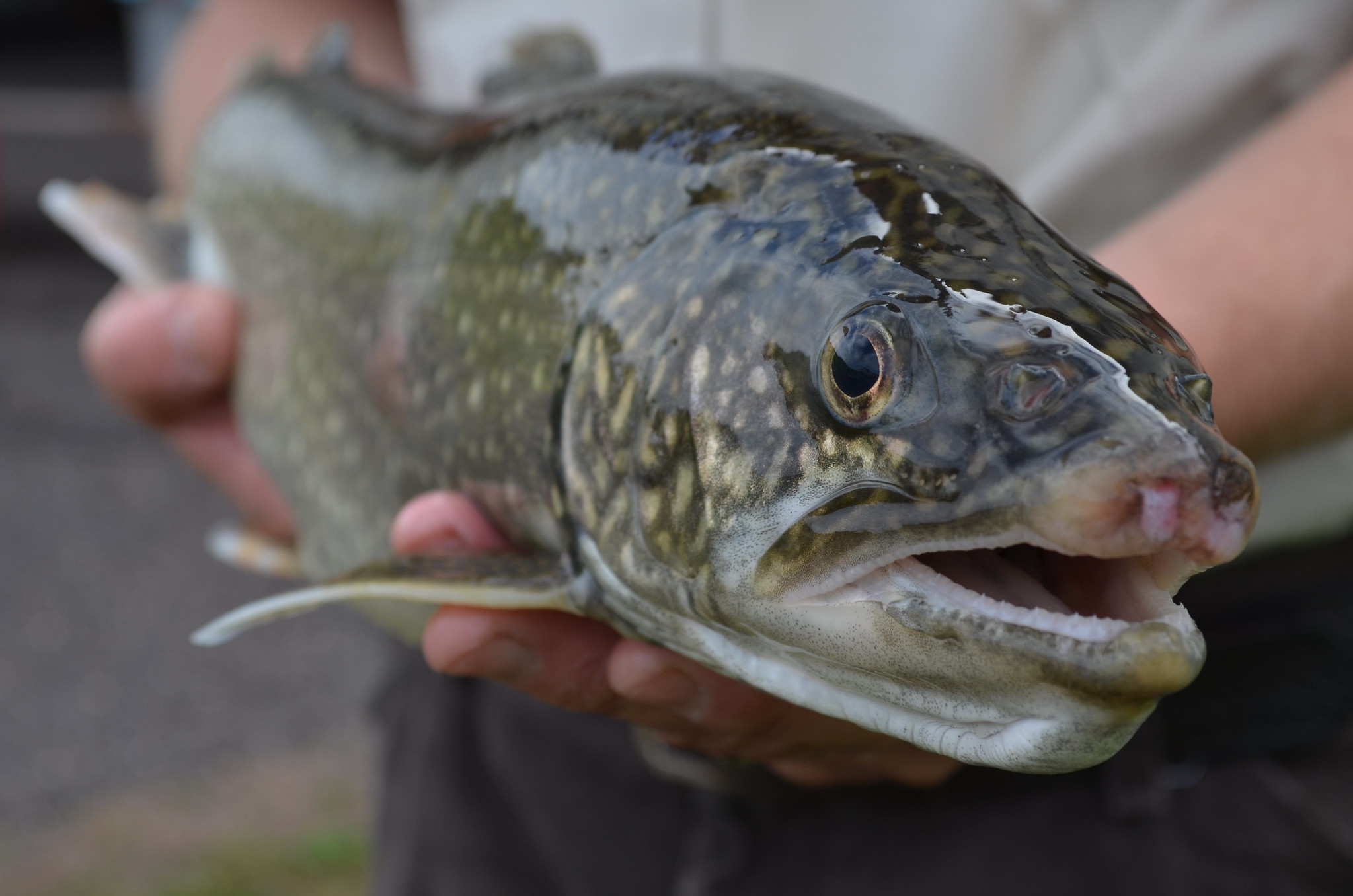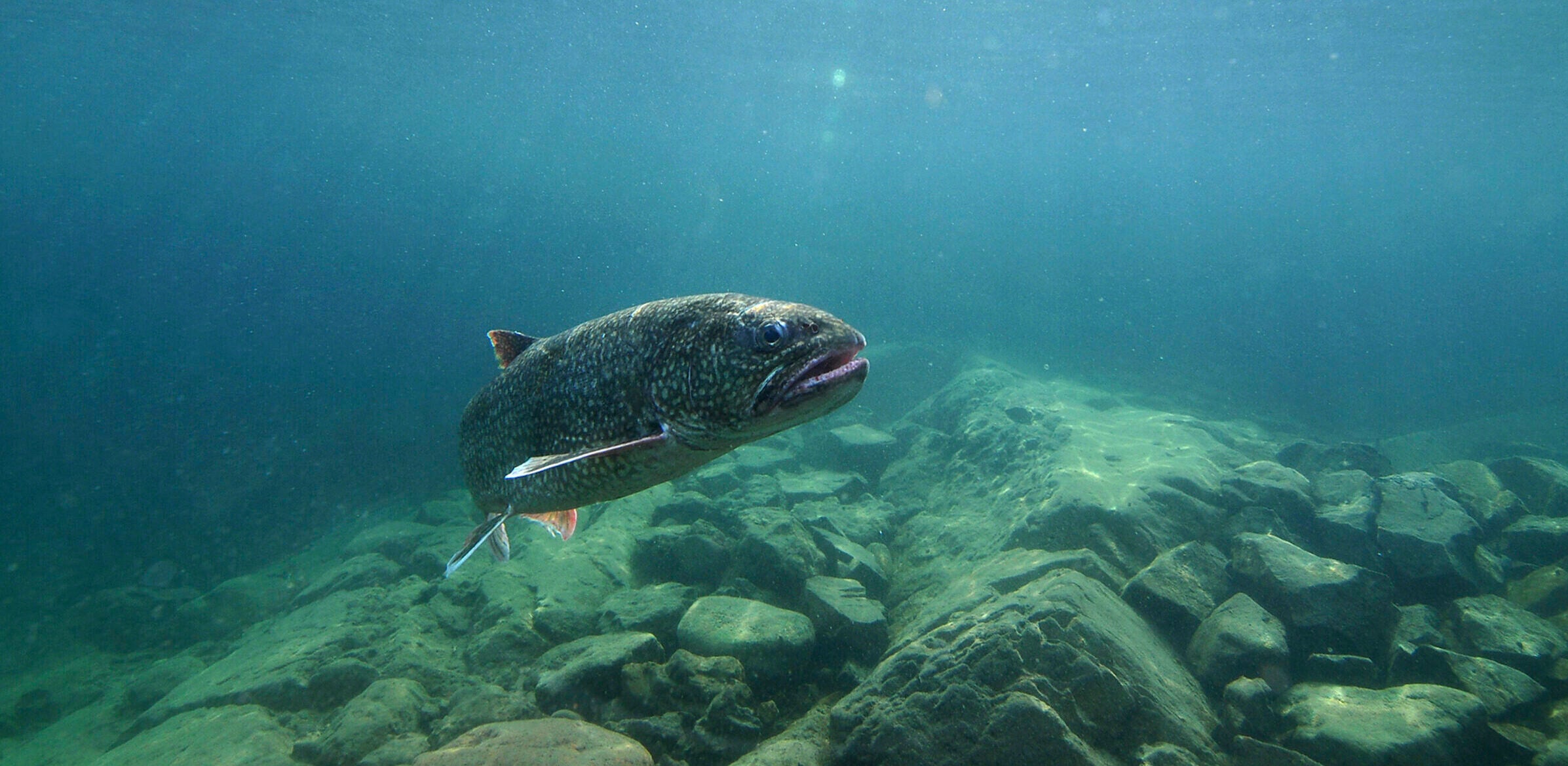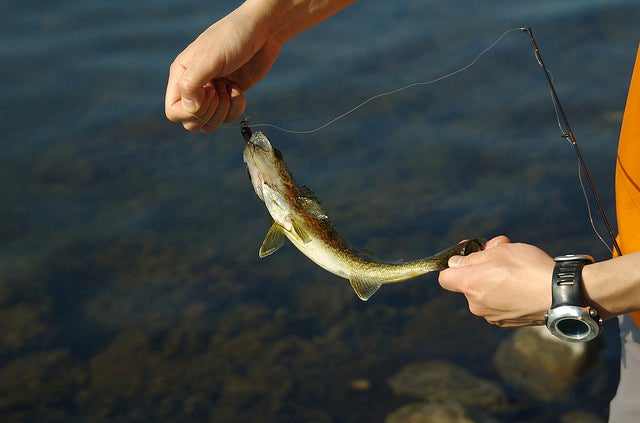Lake trout have declined in Lake Superior around the Apostle Islands in the last several years. In 2014, the state took emergency action to limit lake trout harvests for sports fishermen and officials have been seeking feedback from anglers on new proposed limits to help lake trout recover. But sports fishermen aren’t happy.
The Wisconsin Department of Natural Resources estimates there are roughly 200,000 lake trout in the region. The overall harvest was set at 50,000 this year. According to DNR fisheries biologist Jared Myers, harvest limits will remain necessary next year to help younger fish reach spawning age so lake trout can recover.
“We’re harvesting more fish out of Wisconsin waters than anywhere else on the lake,” Myers said. “The thing about the Wisconsin (side of the lake) is that we have so many stakeholders that that pie is being divided.”
Stay informed on the latest news
Sign up for WPR’s email newsletter.
Lake trout harvests are split 50-50 between the state and two tribes under a 10-year Lake Superior fishing agreement. The state portion is divvied up further between commercial fishermen and sports anglers. Last year, sports fishermen were able to harvest half the number of lake trout they’re allowed on average and about two-thirds less than the prior season.
Scott Bretting owns an inn and bait shop in Ashland. He said the state should do what it can to increase the amount of fish that can be harvested from the lake.
“If it can sustain it and support it. Because the tourism, the local fishermen, the local restaurants — there’s no shortage of market for good fish,” Bretting said. “I’d really like to see it grow versus a decline like we are doing right now.”
North Wisconsin Rod and Gun Club President Dave Sorenson said the state should raise bag limits and consider stocking lake trout.
“We’re only taking 14,000 fish on an average,” he said. “Now it’s less than that. We are not the problem. The problem is the commercial fishery.”
The DNR’s Jared Myers said the lake will produce more fish than stocking ever could. He also cautioned that raising bag limits brings the risk of an early end to the season much like Minnesota has seen with walleye on Lake Mille Lacs. Myers said they’re trying to set limits people can live with while protecting the fishery.
“This isn’t a reg that we’re doing for fun. This is something that we have to do to honor our agreement that we made,” he said.
Sports fishermen say they should be included in state and tribal negotiations over each party’s share under the fishing agreement, which expires this year. Myers said those discussions with the Red Cliff and Bad River bands are confidential and ongoing.
Bayfield commercial fisherman Craig Hoopman said the commercial fishery takes it on the chin when numbers go down. But, he said they’re receiving fewer tags from the state to harvest lake trout.
“When we do take a reduction in our lake trout tags, we lose the gill net effort that I’m allowed to fish these nets to harvest whitefish,” he explained.
That’s because the state links the number of lake trout tags with the amount of gill net that can be used. That poses a challenge for commercial and tribal fishermen who use gill nets to catch whitefish. Red Cliff tribal biologist Chad Abel said there’s been a lot of discussion on whether there’s a way to manage the fishery without tying lake trout harvests to whitefish.
“Unfortunately when you fish for whitefish, you are going to encounter lake trout as they often reside in the same portions of the lake,” he said. “It’s difficult to manage.”
Abel said the Red Cliff Tribe is just as concerned about the economic impact of the lake trout’s decline.
“If not more concerned than other people that rely on this lake, either for sport or for commercial purposes,” he said. “The health of the lake is important beyond just the dollars that are available to the commercial fishery.”
Abel said the tribes and state are covering all the bases in their negotiations. An extension of the current agreement is likely. In the meantime, the state is hoping to reach a consensus with sports fishermen on new lake trout limits by January.
Wisconsin Public Radio, © Copyright 2025, Board of Regents of the University of Wisconsin System and Wisconsin Educational Communications Board.

